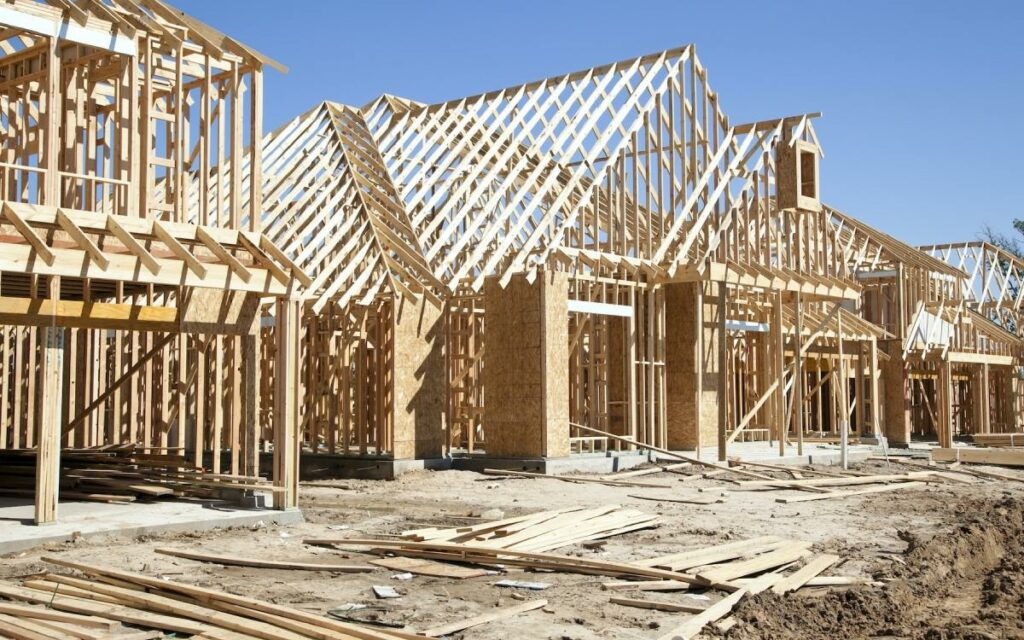
The report concludes that ‘Hamilton’s lack of attainable housing for families leaves the city in the uncomfortable situation of being unable to house the workers it needs.’ Photo credit: Getty Images
A new housing report entitled “Who Will Swing The Hammer?” suggests that the unaffordability of Hamilton’s housing market is starting to have a detrimental impact on the city’s social and economic viability.
The report was prepared by the Smart Prosperity Institute, a national research network and policy think tank based at the University of Ottawa.
It was written by Jesse Helmer, Mike Moffatt, and Maryam Hosseini of the Smart Prosperity Institute and was made possible by funding from the West End Home Builders’ Association and the Hamilton Chamber of Commerce.
The document examines “metropolitan Hamilton,” which includes the City of Hamilton, Burlington, and Grimsby.
It begins by noting that metropolitan Hamilton (Metro Hamilton) is “at the centre of a troubling paradox” because of a pre-existing housing shortage. The paper says that Metro Hamilton needs to double homebuilding over the next decade to address the shortage and that high housing costs and rents are pricing out much-needed workers.
The report notes that trades workers are needed in Metro Hamilton to build homes, manufacturing and tech workers are required to replace the aging workforce, and healthcare workers are needed to care for the aging population.
However, it posits that Metro Hamilton is struggling to attract and retain young workers, especially if they want to have children.
Moffatt, Senior Director of the Smart Prosperity Institute, says that the situation in Hamilton is so bad that “the high cost of housing is like a payroll tax for Hamilton area employers. If they wish to retain their workforce, there will be significant upward pressure on wages.”
The paper also makes a number of additional observations:
- Hamilton receives fewer immigrants than Kitchener-Cambridge-Waterloo and fewer families moving in from the Greater Toronto Area than Oshawa. Hamilton also receives fewer international students than other areas.
- Hamilton is struggling to retain young families, losing thousands of people, on net yearly to Brantford and St. Catharines-Niagara and also losing more people to other provinces than other mid-sized Ontario metros.
- The Canadian Housing Survey identifies that the most common reason existing homeowners move out of Hamilton is to upgrade to a larger or better-quality dwelling. For first-time buyers, it is to become a homeowner.
- Hamilton has a pre-existing housing shortage of roughly 14,500 units in the City of Hamilton alone which helps explains high home prices.
- In particular, Hamilton has a shortage of family-friendly housing and the city’s housing stock is shifting towards building smaller, less child-friendly units.
- Hamilton will have increased difficulty competing with cities like Ottawa and Calgary for talent due to a lack of attainable housing: Hamilton is still relatively competitive in attracting families without children, but families are being priced out.
- Hamilton’s economic prosperity and ability to ensure enough social services for an aging population requires a substantial increase in family-friendly housing so that the next generation of workers can both work and live in the city.
The report concludes that “Hamilton’s lack of attainable housing for families leaves the city in the uncomfortable situation of being unable to house the workers it needs. This paradox leaves us to ask, who will swing the hammer?”
In response to the report, Greg Dunnett, President and CEO of the Hamilton Chamber of Commerce, says that “Hamilton area businesses are looking to attract the best and the brightest talent from around the world.”
However, he’s concerned that attracting talent cannot happen when housing in Hamilton is so unaffordable.
“We need to take decisive action today or we will risk losing talent and opportunities to our neighbouring regions,” Dunnett continues.
Focusing directly on homebuilding, Mike Collins-Williams, the CEO of the West End Home Builders’ Association adds, “We need to build a lot more homes of all types and tenures for our growing community, it’s time to get shovels in the ground.”
The full 55-page report can be read on the Smart Prosperity Institute’s website.

Based in Hamilton, he reaches hundreds of thousands of people monthly on Facebook, Instagram, TikTok, and Twitter. He has been published in The Hamilton Spectator, Stoney Creek News, and Bay Observer. He has also been a segment host with Cable 14 Hamilton. In 2017, he received the Chancellor Full Tuition Scholarship from the University of Ottawa (BA, 2022). He has also received the Governor General’s Academic Medal. He formerly worked in a non-partisan role on Parliament Hill in Ottawa.






